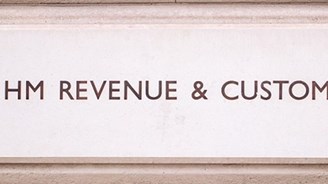Kiss goodbye to your abbreviated accounts

For some small companies, the option to file abbreviated accounts provides a viable way of keeping private company information out of the public domain. However, changes introduced within The Companies, Partnerships and Groups (Accounts and Reports) Regulations 2015 remove this option.
For periods commencing on or after 1 January 2016 (or one year earlier if directors choose to early-adopt the legislative changes) the option to file abbreviated accounts for small and medium-sized companies is removed. In this blog, we'll look some of the implications.
What's changing?
A small company currently has a number of options when it comes to filing their accounts. First, they could file their full accounts. Second, they could remove the directors' report and / or profit and loss account from the full accounts and file the rest. Third, they could choose to file abbreviated accounts.
The abbreviated accounts option currently permits a small company to prepare full accounts for the members and then file only the highlights at Companies House. No directors' report or profit and loss account, a stripped-back balance sheet and very limited notes.
A lot of small companies still take this third option and it's this option that is being removed.
Don't the new regulations reduce small company disclosures anyway?
Well, there's the rub. Once you get into the finer detail of the new disclosure requirements, the answer is that disclosures probably don't reduce that much for most small companies. For example, employee numbers will be disclosed and as a consequence of FRC proposals to move small companies onto FRS 102 more fair value disclosure will be made.
The second filing option above is retained. But whilst the company would be able to remove the directors' report and profit and loss account, the notes remain.
This means, for example, that whereas current abbreviated accounts disclose limited information on directors' advances, credit transactions and guarantees; the new rules require that disclosures of certain other related party transactions find their way into the filed accounts as well. There is also more analysis of balance sheet items than seen in an equivalent set of abbreviated accounts, unless...
What about the new abridged accounts option?
The regulations permit the accounts for the members to include an abridged profit and loss and / or balance sheet if all the members agree. This is nothing to do with the 'old' abbreviated accounts filing option - we're talking about the 'full' accounts here.
For the purpose of this blog, lets ignore the abridged profit and loss account (on the basis that it doesn't need to be filed anyway) and think about abridging the balance sheet. This option would cut down on some of the analysis of fixed assets and debtors that would otherwise be seen in the notes of un-abridged (and hence filed) accounts. As long as those accounts still show a true and fair view of course! On the subject of 'true and fair'...
Micro-entities file next-to-nothing, right?
Not wrong. Actually the removal of options to file abbreviated accounts might make some companies reconsider this currently unloved sibling of the small companies' regime.
The option of filing a simplified balance sheet and a couple of limited notes (coupled with simplified recognition and measurement requirements when compared to FRS 102) might make these 'deemed true and fair' accounts more popular going forward where a qualifying company is looking to limit the information they file. Expect to hear more on micro-entity reporting over the coming months as this reporting route starts to gain traction.
Are you going to dress this up as an opportunity?
Yes...well, maybe.
Maybe we aren't right to just file abbreviated accounts because it is an option - a number of small companies don't. Maybe it really is harming the prospects of the company, their access to finance and trading opportunities with businesses not willing to ask (and wait) for full accounts.
Maybe this will give some within the accountancy profession the shot in the arm needed to come out from under the accounts software safety blanket and think about the information that is really relevant to their clients and users of their accounts. Or maybe your clients just don't want people downloading information about their juicy related party transactions for free from Companies House.
Whether you agree with the changes or not (and many won't); they are happening. Affected companies and their advisors need to think about the statutory reporting route that best suits their future circumstances. There is still a bit of time to consider the options, but the clock is ticking.



